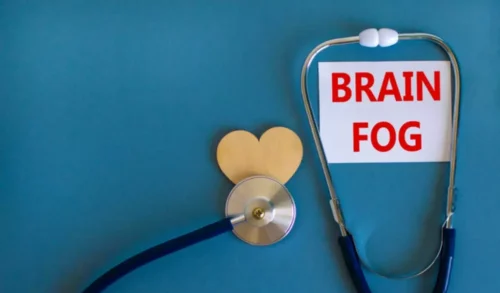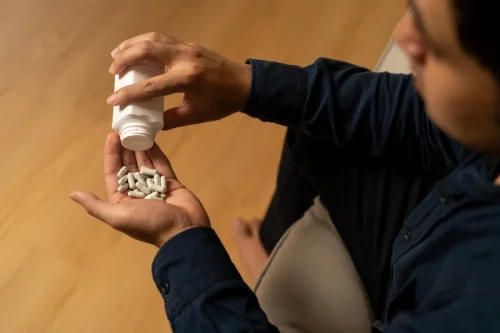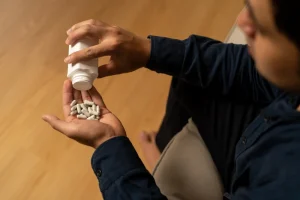
Lived experience suggests that individuals may need tools to manage their health long-term, as well as friendship and support from those with similar lived experiences. Research also suggests that support from families can be key to recovery, but that few families become engaged in the process. Recovery is a process of change through which people improve their health and wellness, live self-directed lives, and strive to reach their full potential. Even people with severe and chronic substance use disorders can, with help, overcome their illness and regain health and social function. Being in recovery is when those positive changes and values become part of a voluntarily adopted lifestyle.

Treatment and recovery options
- That is because the brain is plastic and changes in response to experience—the capacity that underlies all learning.
- Turning to another activity—listening to music, going for a walk—when an urge hits can maintain recovery.
- Various barriers have made family involvement in services for substance use disorders the exception rather than the rule.
- Another widely applied benchmark of recovery is the cessation of negative effects on oneself or any aspect of life.
- • Identity—shifting towards a new, positive view of oneself, one more aligned with one’s deeper values and goals, one built on self-confidence gained by acquiring new skills and new behaviors.
- Building relationships with some of these groups takes persistence and patience, toward improving their impact on people’s lives, he says.
Too, there may be long gaps in a resume that are hard to explain away. The self-help support group message is that addiction is an ongoing disorder with a danger of relapse. Self-help support groups can decrease the sense of shame and isolation that can lead to relapse. In an opioid overdose, a medicine called naloxone can be given by emergency responders, or in some states, by anyone who witnesses an overdose. The proposal appears to reflect Kennedy’s broader view that addiction is at least as much spiritual as it is physiological. But even though it appears to represent a radical departure from the country’s addiction treatment status quo, it is not a new concept.

Drug use and effects on the brain
Another is reorienting the brain circuitry of desire—finding or rediscovering a passion or pursuit that gives meaning to life and furnishes personal goals that are capable of supplanting the desire for drugs. A third is establishing and maintaining a strong sense of connection to others; support helps people stay on track, and it =https://ecosoberhouse.com/ helps retune the neural circuits of desire and goal-pursuit. Learning new coping skills for dealing with unpleasant feelings is another pillar of recovery. It is also possible that individuals who never encounter MHOs or treatment services never perceive their problem to be bad enough to warrant a “serious recovery attempt” merely because they have little reference or context for such an appraisal. He states that research shows that family-based support for addiction recovery is critical but often not obtained. Yet sustained, personalized recovery services are essential because treatment is just the first step toward growth and finding a high quality of life without substances.
Coping and support
Studies show that craving has amphetamine addiction treatment a distinct timetable—there is a rise and fall of craving. In the absence of triggers, or cues, cravings are on a pathway to extinction soon after quitting. But some triggers can’t be avoided, and, further, the human brain, with its magnificent powers of association and thinking, can generate its own. Studies show that craving for alcohol peaks at 60 days of abstinence.
How to Deal With Cravings
- Anyone using substances, even socially, should discuss them with a doctor to ensure safe use and monitor for signs or symptoms of addiction.
- It’s a highly individualized process that is influenced by numerous factors, including the type, severity and duration of addiction.
- Many people in addiction recovery say their spirituality is important in staying clean and sober.
- Addiction Resource aims to provide only the most current, accurate information in regards to addiction and addiction treatment, which means we only reference the most credible sources available.
- Recovery from drug and alcohol addiction is possible and American Addiction Centers is ready to support your road to healing.
- After discussion with you, your health care provider may recommend medicine as part of your treatment for opioid addiction.
- Or ask for a referral to a specialist in drug addiction, such as a licensed alcohol and drug counselor, or a psychiatrist or psychologist.
Millions of people do, whether they were once compulsive users of opiates, alcohol, or gambling. Relapse drug addiction recovery is common and experts see it as an opportunity for learning about and overcoming impediments to change. Because addiction can affect so many aspects of a person’s life, treatment should address the needs of the whole person to be successful. Counselors may select from a menu of services that meet the specific medical, mental, social, occupational, family, and legal needs of their patients to help in their recovery.

- Treatment varies depending on the type of substance, the presence of co-occurring mental disorders and other personal factors.
- Withdrawal from different categories of drugs — such as depressants, stimulants or opioids — produces different side effects and requires different approaches.
- But as President-elect Donald Trump’s nominee to lead the Department of Health and Human Services, his beliefs suddenly carry immense implications for the U.S. response to the overdose crisis.
- Stays can range from several weeks to several months, and the cost is similar to renting an apartment — some cost more than others.
- Understanding the dynamic nature of addiction, harm reduction aligns with the idea that relapses may occur and should be viewed as opportunities for learning and adjustment rather than as failures.
Others benefit from the support of community or peer-based networks. And still others opt for clinical-based recovery through the services of credentialed professionals. Narcotics Anonymous allows people working to overcome drug addiction to support each other on their path to recovery.